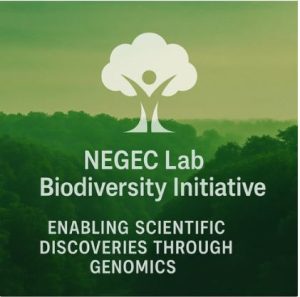
Earth’s ecosystems are experiencing accelerating losses in biodiversity due to climate change, habitat degradation, overexploitation, and invasive species. These challenges have created a critical need for scientific innovation that connects biodiversity knowledge with actionable conservation outcomes. The NEGEC Lab is committed to advancing genome-enabled biodiversity research that informs conservation strategies, ecological restoration, and sustainable resource management. By integrating genomics, ecology, and evolutionary biology, we aim to generate transformative insights into how life adapts, persists, and responds to environmental change.
Our Immediate Goal
The widespread adoption of high-throughput, long-read sequencing and machine learning–based comparative genomics has opened new frontiers in understanding the mechanisms of adaptation and resilience across the tree of life. However, the benefits of these technologies remain unevenly distributed, with limited genomic representation for most species in Africa and other biodiversity-rich regions. Our immediate goal is, in collaboration with Iridian Genomes, to sequence and characterize genomes from underrepresented taxa, particularly those inhabiting ecologically and culturally significant ecosystems in tropical ecosystems including Africa. Through Iridian Genomes’ technological infrastructure and NEGEC Lab’s scientific expertise, we aim to build genomic reference resources that enable cutting-edge biodiversity research and conservation applications across local and global scales.
Our Long-Term Goal
Understanding the “rules of life” requires connecting the biological diversity observed in nature with the genomic, ecological, and environmental processes that sustain it. Our long-term goal is to develop a comprehensive framework linking genome biology, species interactions, and ecosystem function.
By bridging genomic data, ecological modeling, and environmental monitoring, this initiative seeks to:
- Illuminate the genetic and evolutionary bases of adaptation.
- Support evidence-based conservation planning.
- Strengthen local research capacity through training and collaboration.
- Translate biodiversity science into policy-relevant and community-driven action.
Together, we are building a future where genomics serves biodiversity, and biodiversity serves humanity.